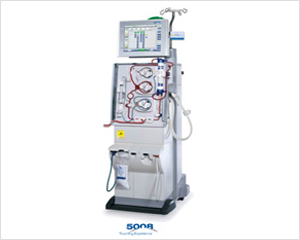-
Medical Treatment Guidance
-
Medical Course
- Gastroenterology
- Pulmonology
- Nephrology
- Cardiology
- Endocrinology
- Internal Physical Examination
- Surgery
- Obstetric & Gynecology
- Pediatrics
- Neurosurgery
- Neurology
- Orthopedics
- Emergentology
- Laboratory Medicine
- Dentistry
- Radiology
- Urology
- Anesthesiology
- Occupational and Environmental Medicine
- Geratology
- Otolaryngology
- International Medical Center
- Medical Team
- Clinic Hours
-
Medical Course
-
Specialized Centers
- Specialized Centers
- 소화기 Endoscopy Center
- hemodialysis Center
- Laparoscope 수술 Center
- Breast·Thyroid Center
- Spinal 통증 Center
- Joint Center
- 뇌 Center
- 수술 Center
- 집중치료 Center
- Cardiovascular Center
- 내분비 Center
- Growth-Clinic Center
- 건강증진 Center
- Home Nursing Center
- Emergency Medical Center
- 진료협력 Center
- Clinical Trial Center
- Occupational Safety and Health Center
- 소화기 Endoscopy Center
- hemodialysis Center
- Laparoscope 수술 Center
- Breast·Thyroid Center
- Spinal 통증 Center
- Joint Center
- 뇌 Center
- 수술 Center
- 집중치료 Center
- Cardiovascular Center
- 내분비 Center
- Growth-Clinic Center
- 건강증진 Center
- Home Nursing Center
- Emergency Medical Center
- 진료협력 Center
- Clinical Trial Center
- Occupational Safety and Health Center
- Specialized Centers
- Customer Center
- About Clinic
- 홈페이지이용안내
- 회원 서비스
- 마이페이지
-
Medical Treatment Guidance
-
Medical Course
- Gastroenterology
- Pulmonology
- Nephrology
- Cardiology
- Endocrinology
- Internal Physical Examination
- Surgery
- Obstetric & Gynecology
- Pediatrics
- Neurosurgery
- Neurology
- Orthopedics
- Emergentology
- Laboratory Medicine
- Dentistry
- Radiology
- Urology
- Anesthesiology
- Occupational and Environmental Medicine
- Geratology
- Otolaryngology
- International Medical Center
- Medical Team
- Clinic Hours
-
Medical Course
-
Specialized Centers
- Specialized Centers
- 소화기 Endoscopy Center
- hemodialysis Center
- Laparoscope 수술 Center
- Breast·Thyroid Center
- Spinal 통증 Center
- Joint Center
- 뇌 Center
- 수술 Center
- 집중치료 Center
- Cardiovascular Center
- 내분비 Center
- Growth-Clinic Center
- 건강증진 Center
- Home Nursing Center
- Emergency Medical Center
- 진료협력 Center
- Clinical Trial Center
- Occupational Safety and Health Center
- 소화기 Endoscopy Center
- hemodialysis Center
- Laparoscope 수술 Center
- Breast·Thyroid Center
- Spinal 통증 Center
- Joint Center
- 뇌 Center
- 수술 Center
- 집중치료 Center
- Cardiovascular Center
- 내분비 Center
- Growth-Clinic Center
- 건강증진 Center
- Home Nursing Center
- Emergency Medical Center
- 진료협력 Center
- Clinical Trial Center
- Occupational Safety and Health Center
- Specialized Centers
- Customer Center
- About Clinic
- 홈페이지이용안내
- 회원 서비스
- 마이페이지
The hospital with pride of 1st class in Hemodialysis adequacy evaluation
1st class in Hemodialysis adequacy evaluation for 3 straight years(2011-2013, Health Insurance Review and Assessment Service) & Dialysis specialist treatment institution
With the pride of the only one hospital in Siheung-si that has received 1st class in Hemodialysis adequacy evaluation for 3 straight years, we provide the utmost care to the patients with the best dialysis and nursing.
We provide warm and close nursing by experienced nurses.
CENTRAL
Clinical Trial Center
FMC dialysis machine

Available of high flow dialysis and 24 hours emergency dialysis with the latest CRRT(Continuous Renal Replacement Therapy) from FMC Corp.
The Central Hospital’s Artificial Kidney Center uses the best FMC Corp. dialysis machine in the country. We pursue to provide the best dialysis to the patient, implementing the 1:1 nursing system by keeping each patient’s personal medical journal, and placing the latest CRRT(Continuous Renal Replacement Therapy) from FMC Corp. which is available of high flow dialysis and 24 hours emergency dialysis at the intensive care unit.
Hemodialysis
What is hemodialysis?
One of the renal replacement therapy that is proceed to terminal renal insufficiency patients. A patient’s blood first comes out from the body by a special tube, we filter out waste and moisture using a special filter(dialysis machine), then lastly put the blood back into the patient’s body.
As explained above, it is able to replace the kidney’s waste eliminating functions by external devices called artificial kidney. The average time spent of hemodialysis is total 12 hours divided 3 session a week, 4 hours per one session. Treatment time can be regulated depending on the patient’s conditions.
In the procedure of osmotic pressure proliferation filtration..
Setting a boundary with semipermeable membrane, at one side we put the patient’s blood accumulated with body wastes and at the opposite side we put a dialysate that has similar extracellular fluid compositions of a normal person. By making each side flow in an opposite way, we eliminate solute including body waste and other elements that are different from the things accumulated in the blood using diffusion due to density difference. And eliminate excessive moisture inside the plasma using the purifying fundamentals of making hydrostatic pressure differences.
| 01 | So you need an arteriovenous fistula, right? | ||
In order to proceed hemodialysis, a large vascular that is able to maintain constant blood flow rate is needed. Since it is impossible to perform dialysis through normal peripheral vascular, we make a thick vascular by directly connecting the artery and vein in the patient’s arms or legs with simple operation. At the meantime, if a patient’s blood vessel conditions are in bad conditions because of diseases like diabetes, we also insert an artificial blood vessel. Yes it is true that an injection syringe is sticked into the blood vessels every time when dialysis is performed, but because it has low risk of blood clot formation and infections, you are free to take a shower. However after blood vessel operation, as it is mentioned above, you should pay deep cautions in daily life. |
|||
| 02 | Effects of hemodialysis | ||
|
|||
| 03 | The pros of hemodialysis | ||
|
|||
| 04 | Please take caution while hemodialysis | ||
|
- Symptoms during performing hemodialysis You may experience vomit, cold sweat, or have a cramp on the legs because of the drop of blood pressure when drastically drawing off moisture inside the body in a limited time. In this case, slowing down the dialysis and reducing the blood transfer speed helps the recovery of symptoms. - Anemia Because of renal insufficiency, the malfunction of hematogenous not only lessen the production of blood cells, it also worsens anemia since the red blood cells are destroyed during dialysis process. In order to prevent anemia, patients should receive blood transfusion or get erythropoietin injected and take iron pills. - Cardiovascular system complications A cardiovascular system complications is rated as the highest cause of death of a hemodialysis patient. So in order to prevent this complications, it is important to set a proper weight, control circulation volume, and manage high blood pressure. It is important to pay special care on weight gain and maintain proper dietary therapy while going through dialysis. - Arteriovenous fistula blockade Many diabetes, old-aged patients and patients with artificial blood vessels frequently experience the blockage in arteriovenous fistula by blood clots. When the blockage is severe, for high success rate, it is important to proceed thrombectomy and angiectasia using the radiation in a short time. |
|||
Dietary therapy of a hemodialysis patient
A chronic renal insufficiency patient can not only recover one’s strength, but also slow down the speed of kidney deterioration by curing malnutrition and metabolic disorders using appropriate diet adjustments. Although it is impossible to cure renal diseases by dietary therapy, along with dialysis it plays a big role at the treatment since it helps maintaining the patient’s health conditions and protect the patient from unexpected incidents.
| 01 | Diet limit on Kalium | ||
|
Kalium(potassium) inside the blood regulates the activation of the muscles. But when the renal function is low it makes kalium to accumulate inside the blood, causing muscle paralysis, cardiac arrhythmia, heart attack. So for hemodialysis patients, it is important to strictly limit food with kalium. - Food with high Kalium contain
- How to cook? Since kalium is highly water soluble, rather eating it raw, it is helpful to soak it in the water for about 2 hours then cook after throwing away the soaked water. |
|||
| 02 | Diet limit on Salinity | ||
|
As for hemo-dialyzed patients, weight gain may worsen the symptoms and can be caught in a vicious circle. So it is important to show great concern in weight control. Therefore, suppressing weight gaining through limiting salinity and fluid intake is crucial. Weight gain should not pass 1.5kg per day, and regulated less than 3kg while dialysis. Daily average salinity intake of South Korean adult are about 15-20g. In case of renal insufficiency patients, 5g of salt intake per day is appropriate. Since we strictly limit the amount of salt, no wonder the food tastes flat and unsavory. But it is necessary to get used to these tastes. Also the following processed food has high salt content, so it must me avoided. - Food with high salt contain
|
|||
| 03 | Diet limit on water | ||
|
In order to reduce the strain on the heart and prevent exacerbation of high blood pressure, fluid intake should be limited too. It is true that along dialysis, it also removes moisture. But if you gain weight while dialysis(over 1.5~2Kg), it may be dangerous. The usual permissible fluid intake amount is 300~500cc per each patient’s urine quantity. So it is crucial to drink less water if possible. You can limit your fluid intake by following these methods. - How can I drink less water than usual?
|
|||
Hemodialysis Unit : 031-8041-3770~1
Medical Team
-

Chief of the Department of Neurology
Seo Yeongbae
Neurology
Apoplexy(stroke), dementia, parkinson's disease, epilepsy, hand tremor, headache, dizziness, sleep disorder, paresthesia, pain, inflammation of the nervous system, facial paralysis etc.

 한국어
한국어 English
English 中文
中文